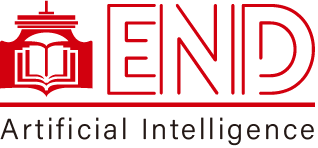Introduction
Entering the Field as a Beginner
For beginners, my advice is: Don’t start with a five or ten-year plan; we are ordinary people, and such plans are not suitable for most.
If we can make a good plan for the next year or two, that is already quite remarkable. Every day brings a new idea, every month presents a change, let alone every year. As long as you work hard and take things step by step: share embedded development experiences, treat learning as a hobby. Don’t overburden yourself; leave half an hour each day to ponder your “thoughts.”
Following a Technical Path
Be a professional engineer in the eyes of your boss; for any development task, whether software or hardware, you should be able to take it on once assigned.
You don’t need to learn too much; just learn a little and don’t follow trends unnecessarily. Sometimes you may learn, but without corresponding development tasks, you only grasp the basics. However, even knowing the basics is fine; when you truly need it, picking it back up will be much quicker, which can be seen as a form of preparation.
But you should at least master one relatively narrow system.
A friend of mine only knows the 51 microcontroller and works in industrial automation for machine tools. Below is his tech stack:
-
Proficient in 51, familiar with other microcontrollers, proficient in 51 assembly, proficient in CPLD, semi-proficient in C51 (only used for some human-machine interface work), and roughly familiar with FPGA (hoping to master designing 51 IP cores).
-
Roughly familiar with STM32, DSP, and their assembly languages, with an understanding of C programming.
-
Proficient in 3D modeling software SOLIDWORKS (can design his own circuit board shapes and mechanical device shapes).
-
Roughly familiar with most machining processes.
-
Proficient in sheet metal and welding.
-
Familiar with CNC equipment and solutions for machine tools.
For everyone, learning should be applied. In the past, I wanted to learn everything but couldn’t use any of it effectively.
When learning, without a platform to apply the knowledge, it’s all just for the sake of learning. But at least when you need to use it, picking it back up will be quick.
Take the ARM core STM32 as an example; I studied hard, from its mechanism to implementation, and conducted many experiments, but in the end, I used it so little that I was left with just some conceptual knowledge.
So, as long as you master one thing, like the 51 microcontroller, from design, prototyping, procurement, welding, to debugging the final product, if you think through it and master it, what is there to fear? Even without a high salary, you will still earn a good annual income. You should understand the saying, “It’s hard to find a good employee for a boss.”
Once you have some age and human resources, you can start your own venture, becoming a so-called “half boss” who is sometimes even worse than a dog.
Starting your own business is easy to say but not easy to do.
I initially jumped in with such apprehension. I took on many projects, often with very short cycles, usually handling maintenance work for previous projects during the day and working on development projects until one or two in the morning. I don’t need to mention how tiring it was; sometimes I think I was risking my life for money!!! My wife wasn’t too keen on me starting out on my own; things were going well as they were. So I told my wife that while I might not be able to provide a steady income every month, I guarantee that the average monthly income over the year will not be less than what I currently earn.
Thus, I began to forge my own path. I’m not afraid of hardship, and I’m not afraid of the lack of returns. What I fear is not overcoming my own psychological barriers; perhaps it’s because I’ve always been quite lucky and smooth sailing.
For my fellow colleagues in the field, you must overcome your psychological barriers and not be overly concerned with today’s gains and losses or the so-called “face” in certain situations. At the very least, we should use the “least cost” to pay for our “tuition.” I’m not afraid if you laugh at me; I’ve paid quite a bit for my “tuition.” This half-boss approach might be somewhat similar to what “Jiutian” describes as SOHO?!
A successful project is not about how good or strong your functions are, but rather how much profit your development brings to the project party; that is true success, even if you only earn a bit of development fees. When doing projects, don’t think too much about yourself; try to empathize with the other party. If they trust you enough to hand over the project, you should consider it from their perspective. Sometimes their demands might seem excessive, but ignorance is no excuse for blame.

Related Books
Title: Principles and Applications of Embedded Microprocessors—Based on ARM Cortex-M3 Microcontroller (STM32 Series) (2nd Edition)
ISBN: 9787302518112
Price: 59 RMB

 Welcome to follow us
Welcome to follow us
Scan to follow the official other new media platforms of the academy.


Student Union Publicity Department of the Artificial Intelligence Institute
Initial review: Zhang Hao
Re-examination | Wu Zewei
Final review | Zhang Changyou
Produced by | Student Union Publicity Department
Welcome to provide | Campus original text | Photography | Video, etc.
Please contact us via the backend for submissions.
